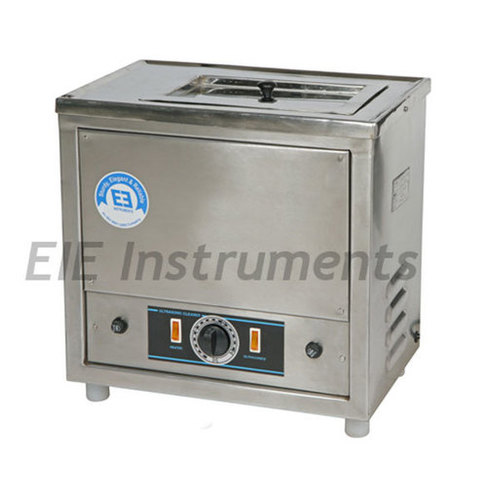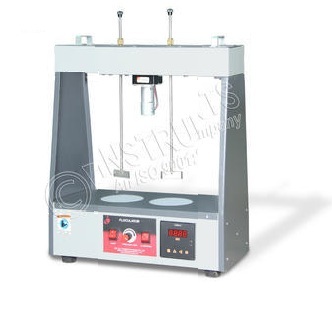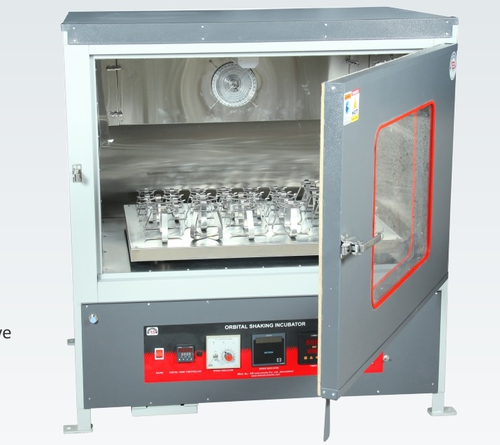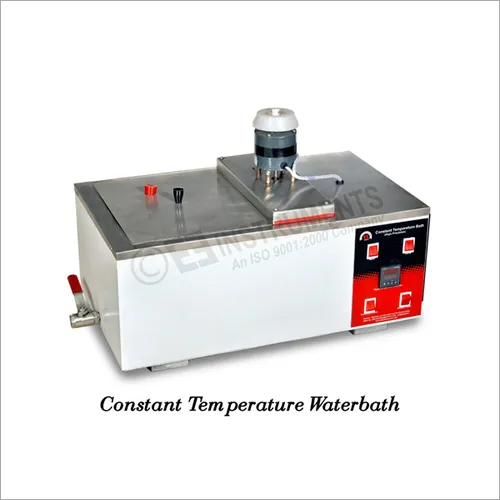Vacuum Oven
Price 1.00 INR/ Piece
Vacuum Oven Specification
- Usage
- GENERAL LAB EQUIPMENTS
- Dimension (L*W*H)
- 520 X 600 X 960 (L X W X D) mm Millimeter (mm)
- Product Type
- VACUUM OVEN-S.S. CHAMBER
- Color
- Silver
- Warranty
- 1 Year
Vacuum Oven Trade Information
- Minimum Order Quantity
- 1 Piece
- FOB Port
- Ahmedabad
- Supply Ability
- 100 Pieces Per Month
- Delivery Time
- 4 Week
- Sample Policy
- Contact us for information regarding our sample policy
- Packaging Details
- Wooden Box / Corrugated Box
- Main Export Market(s)
- Australia, Middle East, Africa, South America, Asia
- Main Domestic Market
- All India
- Certifications
- ISO 9001 : 2015
About Vacuum Oven
When precise temperature control and the removal of air or other gases from the surroundings are required, a vacuum oven is used. we offer ovens to our clients that are designed specifically to operate in low air pressure or vacuum settings, which can help with oxidation prevention, drying procedures, and improving heat transfer efficiency. Provided Vacuum ovens are widely employed for tasks including drying heat-sensitive materials, eliminating solvents or moisture from samples, and conducting research in a regulated setting. They are helpful in fields including scientific research, manufacturing pharmaceuticals, electronics, and others where precision thermal processing is crucial.
Double walled, working chamber of cylindrical design made of SS 304 and outside made of mild steel powder coated. The door is of SS with centre glass window for viewing without opening the door. Temp.controlled from 50 Degree Celsius to 200 Degree Celsius by AUTO TUNING PID Digital Temp. indicating controller, complete with Vacuum gauge, vacuum release valve, a removable shelf but without vacuum Pump. Working on 230 V AC Single phase.
Salient Features:
- Compact and unique design
- Aesthetic exterior appearance
- Highly reliable results
- Reliable components and accessories to ensure quality
- Gasket door with lock provides temperature safety and stability.
- Toughened glass window for easy viewing of the samples
- Automatic high temperature safety cut off system.
Efficient Laboratory Drying Solution
This Vacuum Oven is optimized for laboratory environments where controlled drying and heating are essential. Its reliable 230V AC supply and spacious chamber accommodate various sample sizes. With robust construction and intuitive controls, laboratories can achieve consistent results for drying, sterilizing, and processing samples.
Comprehensive Service and Support
As a leading supplier and service provider based in India, we ensure our vacuum ovens are supported with a 1-year warranty and prompt customer assistance. Our expertise extends to installation, maintenance, and troubleshooting, guaranteeing seamless operation for all users.
FAQs of Vacuum Oven:
Q: How does the vacuum oven operate with a 230 volt power supply?
A: The vacuum oven operates using a standard 230 volt, 50 Hz single-phase AC supply, ensuring compatibility with typical laboratory electrical outlets. This power specification provides consistent heating and vacuum regulation for precise laboratory processes.Q: What laboratory processes can be performed using this vacuum oven?
A: This vacuum oven is suitable for general laboratory tasks such as drying, curing, degassing, and removing solvents from samples. Its controlled environment is ideal for delicate or heat-sensitive materials that require gentle, uniform treatment.Q: When is it recommended to use a vacuum oven instead of a conventional oven?
A: A vacuum oven is preferred when working with materials that are sensitive to oxidation or high temperatures. Its vacuum environment enables efficient drying at lower temperatures, reducing the risk of sample degradation or contamination.Q: Where can I get support or service for the vacuum oven in India?
A: Support and service for this vacuum oven are available through our network as a manufacturer, exporter, supplier, and service provider throughout India. Contact our customer service team for installation, maintenance, or troubleshooting assistance.Q: What is the benefit of the ovens 520 x 600 x 960 mm chamber size?
A: The spacious interior allows for larger sample volumes or multiple batches to be processed simultaneously, improving laboratory productivity and accommodating a variety of experimental setups.Q: How do I safely use the vacuum oven in laboratory settings?
A: To use the vacuum oven safely, ensure proper ventilation, do not overload the chamber, and always follow manufacturer-recommended procedures for loading samples, setting temperatures, and maintaining vacuum pressure. Regular checks and maintenance also enhance operational safety and reliability.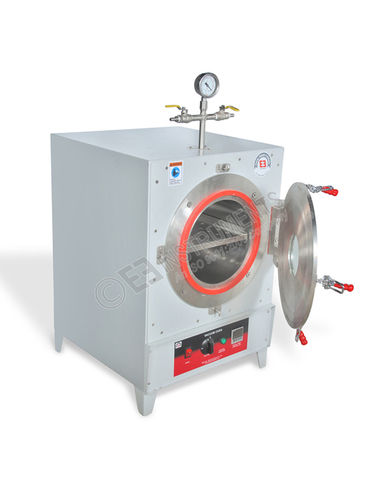
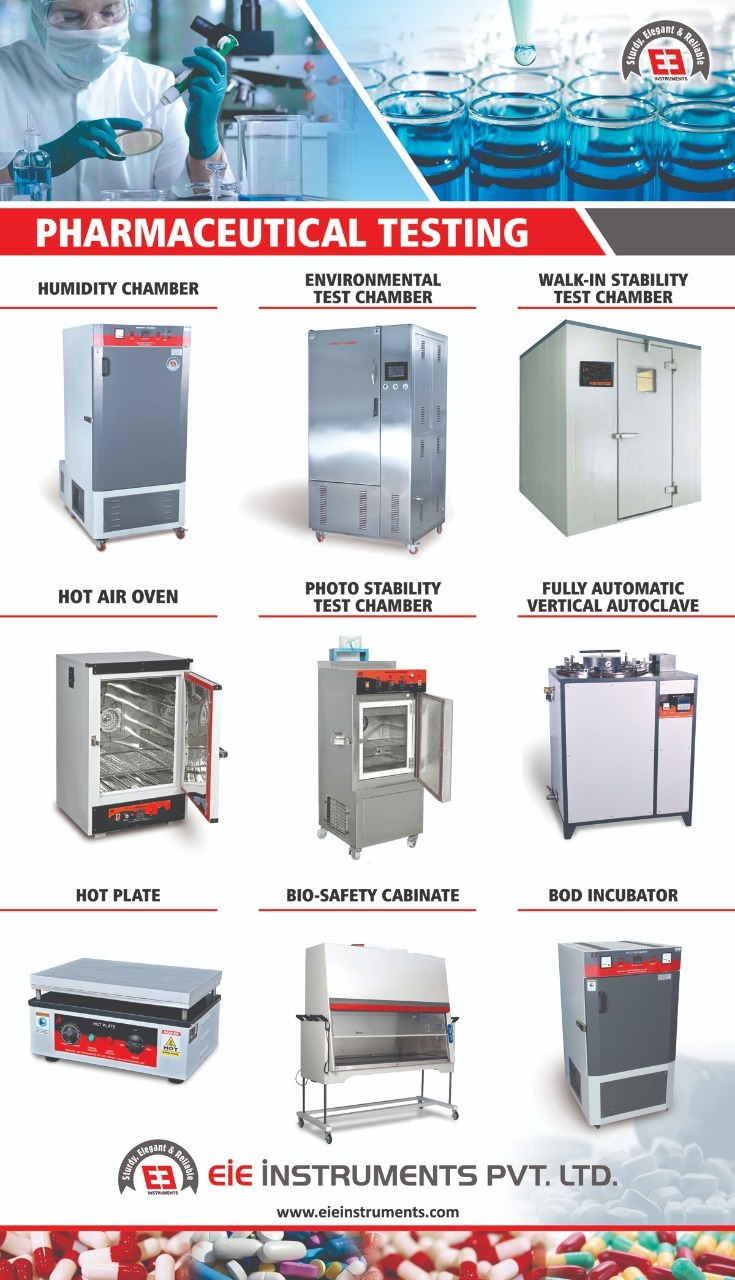

Price:
- 50
- 100
- 200
- 250
- 500
- 1000+
More Products in General Lab Equipments Category
Flocculator Jar Test Apparatus
Price 1.00 INR / Piece
Minimum Order Quantity : 1 Piece
Voltage : 230 Volt (v)
Product Type : Flocculator
Usage : Industrial
Warranty : 1 Year
Orbital Shaking Incubator
Price 1.00 INR / Piece
Minimum Order Quantity : 1 Piece
Voltage : 230 volt Volt (v)
Product Type : ORBITAL SHAKING INCUBATORHEATING & COOLING
Usage : General Laboratory Equipment
Warranty : 1 Year
Constant Temperature Water Bath
Price 1.00 INR / Piece
Minimum Order Quantity : 1 , , Piece
Voltage : 230 Volt (v)
Product Type : CONSTANT TEMPERATURE WATERBATH HIGH PRECISION
Usage : General Laboratory Equipment
Warranty : Yes
 |
EIE INSTRUMENTS PVT. LTD.
All Rights Reserved.(Terms of Use) Developed and Managed by Infocom Network Private Limited. |

 Send Inquiry
Send Inquiry
